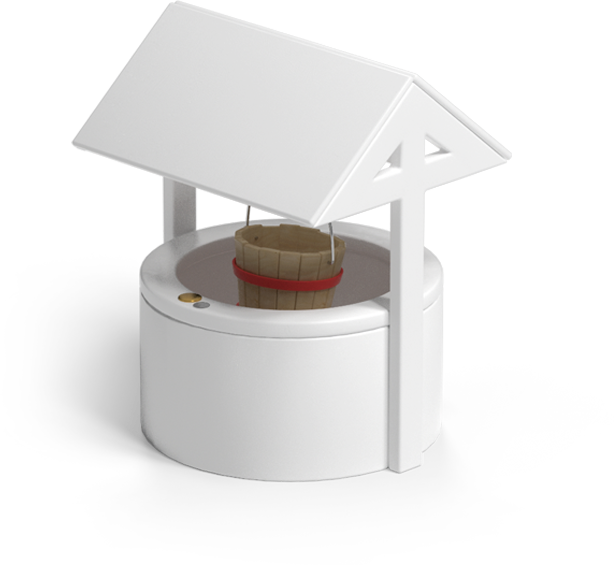Is Property Still A Good Investment?
Buying into property has been a traditional, long term goal for most people for many generations. After all, we all need somewhere to live, and most people recognise the value and potential in owning your own property compared to renting one.
By Jon Howe9/13/21

Is Property Still A Good Investment?
Buying into property has been a traditional, long term goal for most people for many generations. After all, we all need somewhere to live, and most people recognise the value and potential in owning your own property compared to renting one.
Investing in property is a very different consideration, however. There will always be a high potential of problems occurring when buying a property, and there will always be an element of uncertainty over the property market. And investing in a second property that is separate to your own primary residential home, is a proposition that presents a number of hurdles and a requirement for considerable management.
The property market will always be at the mercy of external influences such as the economy, recessions and political crises, as well as unforeseen factors such as Brexit, COVID and the credit crunch which followed the 2008 banking crisis. However, on top of that, investing in property as a means of making money requires foresight, strategy and strong independent advice. So let’s look at this in detail and weigh up the pros and cons to establish whether investing in property is still the lucrative pastime it has been traditionally portrayed as.
Aims of property investment
When we buy a residential property we want to feel safe and secure and to retain some financial freedom. When we invest in property the ultimate aims are very different:
- Retirement income: we might be investing to provide a tidy nest egg in 25 years’ time when we retire, and in the meantime we want a passive involvement to a large extent
- Helping family: we might be investing initially to help our child at university and will keep the buy-to-let property on for a period of time to make some useful income
- Career: we might be investing as a means of starting a serious career as a property investor. This could be through the buy-to-let market, developing properties from the ground-up or through ‘flipping’ to make quick capital gains on properties.
There might be other reasons why we invest in property, but these are the main three. We will look at the difference between buy-to-let (BTL) and flipping later. These are two very contrasting ways to make money through property because they require very different skills and disciplines, but they are the main two ways in which investors look to get into the market.
BTL mortgages were first introduced in 1996, and this made the BTL market much more accessible and resulted in a surge in popularity, with many budding landlords emerging and seeing the prospect of good returns from the BTL market. The situation has changed quite significantly since, however, and the BTL market is no longer quite as lucrative. But is property still a good investment? Let’s look at the pros and cons.
Pros of property investment
- The value of a property will increase at a faster rate than saving money: Historic trends show us that the property market grows over a long term period, regardless of shorter terms fluctuations. So you might see an 8% growth over five years, for example, which will usually be a much bigger gain than will be seen via savings accounts or ISAs, where you might not even see a 4% return over the same period.
- You can increase the value of a property yourself: Okay, this might sometimes require an investment in a new kitchen or bathroom, or decking in the garden, but this will increase the value of a property much more and much quicker than relying on simple organic market growth.
- Easy accessibility: BTL mortgages offer good accessibility to the earning potential of the BTL market, meaning almost anyone can become a BTL landlord.
- Always a market: Although there are many different sectors to the property market, there will always be rental demand for BTL properties and there should always be demand for the type of property you want to sell, as long as you market it properly. After all, everyone needs somewhere to live and generally-speaking, that will never change.
- Historical trends: Whilst there might be an element of uncertainty about the property market, there is a lot of historical data which an investor can study. This can provide a good foundation on which to base decisions, and means that, as an investment market, property is actually one of the more predictable ones.
- Two income streams: The BTL market provides two income streams for an investor. Firstly there is the regular monthly rental income and also there is the expected capital growth when you eventually sell the property.
- Property market works in cycles: An investor may get anxious at a depressed property market but history shows this will most likely only be short term. Over a longer term period the market will recover because the market typically works in cycles.
- Demand outstrips supply: There is an issue in the UK with new-build property supply, which means that there is not sufficient property stock to fulfil demand. Therefore, anyone with property holds the trump card. And if you are also renting out that property then your property is in demand on a two-fold basis.
- Regional variation: If the property market is not thriving in your local area, you can find a different location where it is. This has often been the case in the UK, for example where the London market has been saturated and seeing little growth, but in the big northern cities the market is flourishing and prices are soaring. This means you could possibly see a BTL rental yield of maybe 5% in the capital, but nearer 8 or 9% in Manchester, Liverpool or Leeds.
- Traditional markets: Some areas of towns and cities have ‘traditional’ rental markets, particularly where there is a high student population. This makes it very easy to identify a target market and one which is likely to remain stable for many years.
- Insurance cover: An investor can take out insurance cover to protect themselves against void periods of no income, damage to the property and legal costs.
Cons of property investment
- Government crackdown on landlords: Recent years have seen the UK Government put restraints on the landlord sector, making the BTL market potentially less profitable. Firstly there was the phased reduction of tax relief, then a 3% surcharge was added to stamp duty for second homes. These have eaten into profits and seen many landlords back away from BTL as an investment sector.
- High property prices: It is possible that you will hit the property market when prices are high, making it hard to access the market as an initial investment.
- Landlord responsibilities: A landlord has many legal and health & safety responsibilities, on top of the management of a property itself, in terms of marketing the property, finding tenants, collecting rent and dealing with maintenance etc. It is possible to hire a letting agent to manage all this for you, but of course there is a considerable cost to that.
- Short term market depression: If you are lucky you will be able to ride out dips in the market and sit tight on your investment knowing you are in it for the long term. However, if your financial circumstances change and you need to sell at a time when the market is low, you could lose money on your initial investment. Ideally, a BTL investment needs to be for the long term, this means you have more chance of seeing capital growth and you will enjoy more regular rental income in the meantime.
- Void periods: It is possible to experience periods where you have no tenants and no income. Can you cover this financially? Often these periods are easy to predict, such as during summer time for a student property, and therefore easier to manage, and this often involves insurance costs. But void periods can also result from having bad tenants, defaulting tenants or not being able to find a tenant for an unappealing property.
- Costs of refurbishment: Even if you are preparing a property for BTL there may be refurbishment costs. A property needs to be fit for habitation and attractive to your specific tenant market. These can vary in expectation and therefore tastes and costs. And if you are looking to improve a property to sell quickly, these costs are much more significant.
- Flipping can be less predictable: If BTL is not for you, and you want to develop or refurbish a property to sell quickly, ‘flipping’ can be very lucrative but is much more high risk. Flipping is very time-sensitive and requires much more management skill than BTL, and is therefore perhaps more suited to an experienced investor.
- Liquidity: A BTL property has less liquidity than many other investments. If you are wanting a quick return and to get hold of your cash as fast as possible, yes, you will see rental income, but your main investment cash is tied up in the property for the long term, or at least it should be. Flipping a property is different of course, but in terms of liquidity, there are other investment options that perhaps allow a quicker return on investment, if not necessarily a bigger one.
Alternative investment options
BTL and flipping are both viable options for property investment and are both very popular. Flipping a property requires considerable skill and judgement, but can be a lucrative option. Essentially, in simple terms, you are looking for a property that you can buy cheaply, improve with refurbishment and adding fixtures and fittings to make it more marketable, and to sell it at a much better price.
This does depend on many factors however. Location is a big factor, because you need to ask yourself why the property is cheap in the first place. Is it because the location is not desirable, and therefore you might not get your money back however much you spend on improving the property. The other reason it might be cheap is its condition. Maybe it has structural issues, it’s old and needs re-wiring and other improvements, or it just needs a considerable upgrading of the kitchen, bathroom and garden? All this adds up and might mean you spend £40,000 improving the property, but only make £40,000 on the selling price. You’ve broken even, but was it worth the effort? It’s a balancing act and an inexperienced investor can get into financial trouble very quickly. However, this shows how property can be a more liquid asset, because you ‘could’ turn a property round and make £20,000 profit in five or six months in theory. But it is very much about timing, market perception and in a lot of cases, sheer luck.
There are other investment alternatives to BTL and flipping property of course. These include:
- Property crowdfunding: Here you can take an equity stake in a property or get involved in P2P lending, so you can make either an annual dividend or a % share on a repaid loan that has added interest. This type of investment involves much less risk and much less management.
- Shares: These are well known to be high risk and extremely volatile, but can be extremely lucrative. Shares are much more liquid and therefore are a short term investment, but you would certainly need to follow some expert independent financial advice to be sure of making a good return.
- Bonds: Investing in a bond is considered to be much more stable and risk-averse than shares, but in turn, the rewards are less lucrative as a result. Investing in bonds – essentially a loan to a government or other large organisation – occurs over a shorter term period of between one year and ten years typically, and so your money is more liquid.
So, is property still a good investment?
In short, yes it is. Despite the restraints put on BTL landlords, a property investor is still very much the master of their own destiny. And there is sufficient predictability and historical data around to help an investor make the right decisions, in terms of where, when and what to buy.
An experienced property investor is more likely to remain successful if they build a diverse portfolio of properties over a period of years. So this may be a couple of BTL properties, some crowdfunding investment and maybe one property at a time to flip quickly. These represent properties with different degrees of risk and liquidity, which means if one investment fails you have others to fall back on, and certainly ones that are more stable and give you access to cash and working capital. As a business, you need to balance different income streams accordingly.
But alternatively, if you are simply investing in one BTL property in order to build a nice nest egg for retirement, there are few more predictable investment markets than property. And because we have all bought and dealt with property to some extent, it is a relatively easy market to access and understand, particularly compared to stocks and shares, for example.
However, whatever kind of investor you are, property is most likely to remain a good investment if you follow these golden rules:
- Keep your finances in order and always know where your money is
- Choose your target market very carefully
- Consider insurance to cover yourself against all eventualities
- Build up a good list of reliable and trustworthy contacts for financial, legal and building/refurb work
- Decide whether you want to be a hands-on or hands-off investor
- Get good independent financial advice on every investment opportunity.
Take a look at our other articles




